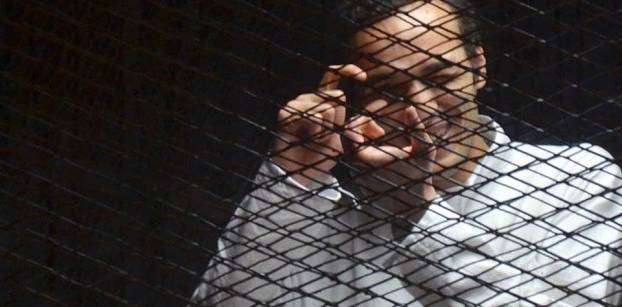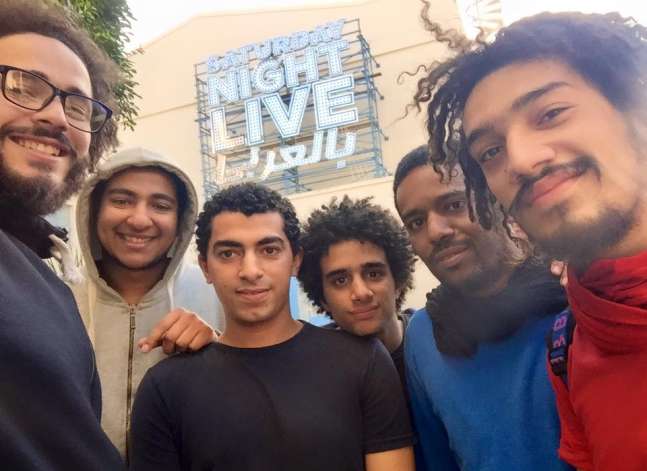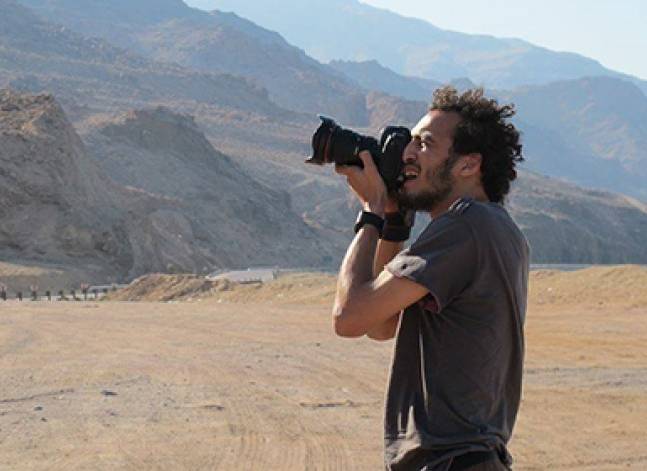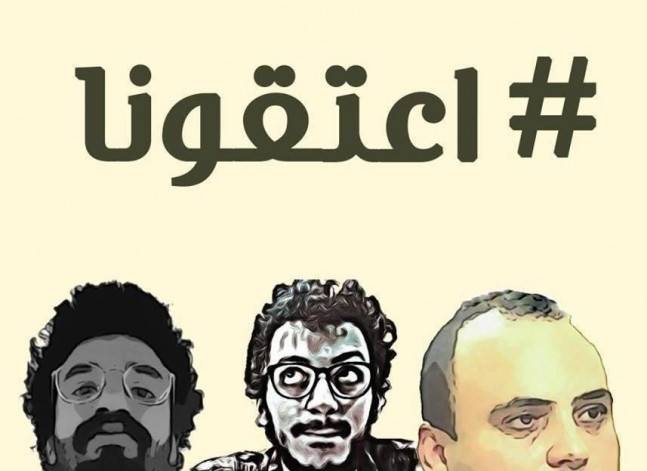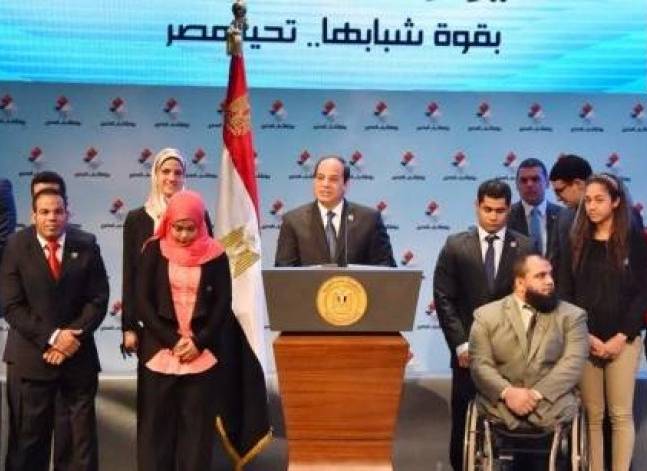Latest NEWS
- Aswat Masriya, the last word
- Roundup of Egypt's press headlines on March 15, 2017
- Roundup of Egypt's press headlines on March 14, 2017
- Former Egyptian President Hosni Mubarak to be released: lawyer
- Roundup of Egypt's press headlines on March 13, 2017
- Egypt's capital set to grow by half a million in 2017
- Egypt's wheat reserves to double with start of harvest -supply min
- Roundup of Egypt's press headlines on March 12, 2017
Rights lawyers skeptical of committee formed to review cases of young detainees
Photojournalist Mahmoud Abu Zeid, known as Shawkan, has been detained for over three years pending trial. (Photo courtesy of the Freedom for Shawkan Facebook page)
CAIRO, Nov 1 (Aswat Masriya) - Human rights lawyers raised questions over the new committee formed at the behest of President Abdel Fattah al-Sisi to look into cases of imprisoned youth.
On Tuesday, the presidency announced the formation of the committee which includes representatives from the National Council for Human Rights (NCHR), MP Tarek Al-Khouly, and Free Egyptians party’s board member Osama Al-Ghalazy Harb, among others, to look into cases of young people pending trial, MENA reported.
The committee is tasked with sending its findings to the president in coordination with the parliament’s human rights committee, according to the news agency.
Fatma Serag, head of the legal unit at Association of Freedom of Thought and Expression (AFTE), said the committee should have included lawyers who have an extensive background in human rights issues and already have experience with similar cases.
She told Aswat Masriya that the committee’s role is generally obscure. “It is not clear what kind of cases will be examined, nor is it clear what the committee’s authorities and working mechanisms are.”
According to Serag, many of the detained youth are facing terrorism-related charges or charges of belonging to the outlawed Muslim Brotherhood group.
During the closing ceremony of the youth conference held in Sharm El-Sheikh last week, Sisi announced a set of decisions, among which was to launch a national committee to examine the cases of imprisoned youth that have not received verdicts yet.
This committee will work in collaboration with state bodies and present its final report within 15 days at most, he said, in order to undertake needed legal procedures for their release.
However, this promising decision for thousands of youth behind bars is considered unconstitutional, according to Gamal Eid, director of the Arab Network for Human Rights and Information (ANHRI).
Eid told Aswat Masriya that the committee gives the president an unconstitutional authority.
“The president is not authorised to release detainees that have not received final verdicts, but can only pardon those who have been sentenced,” he said.
This raises doubts towards the “flowery” promises by the committee, “which we actually never witnessed in practice,” Eid added.
According to the Egyptian Initiative for Personal Rights (EIPR), at least 1,464 people alone are held in Egyptian prisons pending trial for periods that have exceeded the legal limit.
Article 143 of the Code of Criminal Procedure sets a cap on pretrial detention of 18 months to 2 years in criminal cases.
The NCHR has repeatedly sent a detailed list of examined cases for imprisoned youth, but to no avail.
Among the most prominent cases is that of photojournalist Mahmoud Abu Zeid, known as Shawkan, who was arrested in August 2013 while covering the security forces’ dispersal of the Rabaa al-Adawiya sit-in. His detention has been repeatedly renewed since as he awaits a verdict.
Ragia Omran, NCHR board member and rights lawyer, said the names on the lists complied by the council received no response.
“It’s been two years and no progress has taken place in those cases,” she said.

